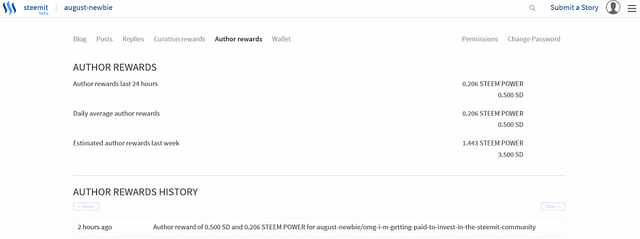So . . . . day 2 of the great experiment. I've earned my first dollar! (picture at bottom so I can frame it later  ) I've made my first friend with an awesome idea. Time to make my daily post as a corporate shill . . . .
) I've made my first friend with an awesome idea. Time to make my daily post as a corporate shill . . . .
 The Digital Wisdom Group's mission is to create (or assist in the creation of) a safe/moral human-level sentient AI. We had a presence at the First Workshop on AGI in 2006 and have presented papers at a majority of the yearly AGI and BICA conferences since. Like Stephen Hawking and Elon Musk, we are concerned about the potential for disastrous consequences of our heedless rush towards ever more powerful systems. Unlike the celebrity doomsayers, we have a deep knowledge of the fields of artificial intelligence, economics, evolutionary biology and social psychology and believe that not only can safe/moral machine intelligence be created -- but that its intentional creation is likely our best hope for preventing the developing dystopia (assuming that its creators aren't unwise enough to attempt to enslave it).
The Digital Wisdom Group's mission is to create (or assist in the creation of) a safe/moral human-level sentient AI. We had a presence at the First Workshop on AGI in 2006 and have presented papers at a majority of the yearly AGI and BICA conferences since. Like Stephen Hawking and Elon Musk, we are concerned about the potential for disastrous consequences of our heedless rush towards ever more powerful systems. Unlike the celebrity doomsayers, we have a deep knowledge of the fields of artificial intelligence, economics, evolutionary biology and social psychology and believe that not only can safe/moral machine intelligence be created -- but that its intentional creation is likely our best hope for preventing the developing dystopia (assuming that its creators aren't unwise enough to attempt to enslave it).
In 2012, Digital Wisdom proposed that crowd-sourcing is the safest and most effective way to create machine intelligence. At that time, we identified 4 pre-requisites that we believed to be necessary as part of the supporting infrastructure:
- an inviolate logging mechanism
- a method to make (and receive) micro-payments
- a community
- many ways to create value for the community (i.e. to earn a living)
The first two made it obvious that we would be living on a block-chain with an associated cryptocurrency -- but we certainly didn't want to divert our focus by "rolling our own". Ethereum initially looked really, really interesting but has, to our minds, 2 fatal flaws that makes it very likely to be supplanted by a late-coming direct competitor. The fatal technical flaw is that the language Solid was designed to be Turing-complete. Choosing to be universally applicable rather than being predictable and provable is the mistake that will allow someone else to corner the smart contracts niche. The fatal community/social flaw is that too few individuals are trying to perform too many, too diverse tasks outside of their area of expertise. Indeed, as @dan pointed out the DAO was DOA even before it was hacked.
Steemit has all four of our pre-requisites with no technical issues, very few community issues that we are only mildly concerned about and numerous useful opportunities that we didn't expect to see this soon. The development team appears extremely savvy both technically and socially, the ecosystem already supports tremendous development opportunities without having to get them involved and the fact that it is in the process of going viral is the best that we can hope for.
Digital Wisdom's goal is to become part of the Steemit phenomenon,
- initially by creating tools to make the SteemIt experience easier and more rewarding, as well as
- intentionally creating a sub-community to creating value/resources to forward our goals. Then
- by creating machine learning and collective intelligence tools and products. And, finally,
- by producing a self-improving entity, designed and vetted by the community, which can use those tools and products to earn a "living" producing value for others and for itself.

So . . . . enough of that. Sadly, that took me much longer to write than I would have guessed.
If you are interested in helping us with our goal of safe/moral human-level sentient AI, please drop me a comment below.

What steps have you laid out so far in your goal of creating a Steemit subcommunity?
Downvoting a post can decrease pending rewards and make it less visible. Common reasons:
Submit